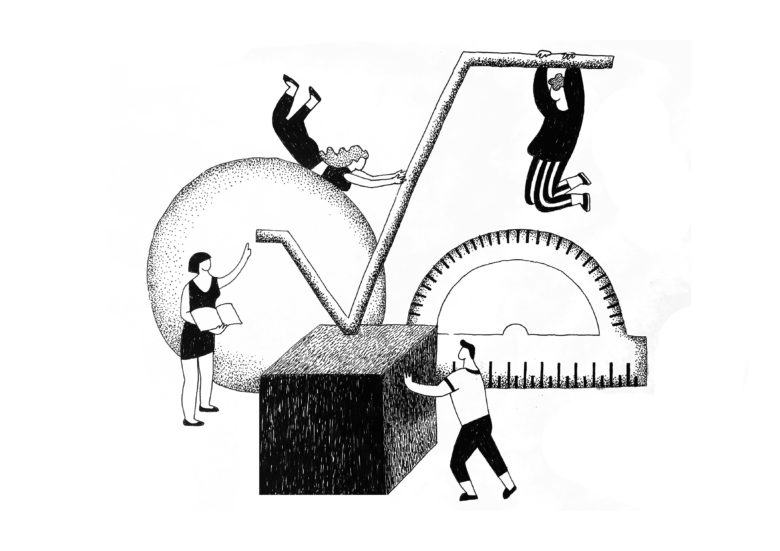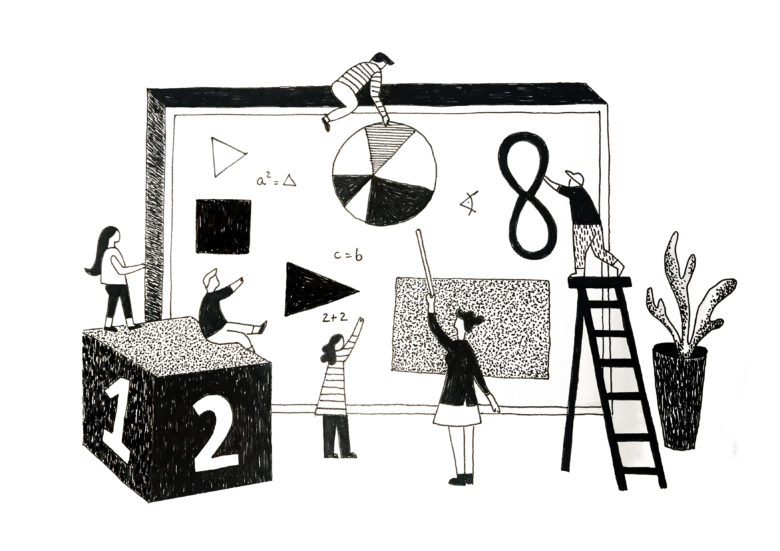How open education can help us deal with the lockdown – Polish perspective
As a result of the announcement of the state of epidemic, schools in Poland were closed on March 12, and the obligation of distance education was introduced on March 25. Originally, this period was planned to last until April 10. However, it has already been extended until April 26 and it is very likely that students will not return to school this year.
Almost immediately after the decision of schools closure has been announced, the Polish environment promoting open education was mobilized to step in. Actions taken include not only sharing available resources. Polish educational organizations work together to prevent exclusion, ensure equal access to education, support teachers, students and parents in order to create the most convenient learning and teaching conditions in these difficult times.

Recommendations for the time of crisis
All these activities are part of the vision of open education defined in the UNESCO Recommendation on Open Educational Resources adopted in November 2019. According to this document, open education is not limited to educational resources shared under open licenses. It also includes specific practices aimed at creating the following cooperation model:
Innovative pedagogical options to engage both educators and learners to become more active participants in educational process and creators of content as member of an inclusive knowledge society.
In the face of the global educational crisis triggered by the COVID-19 epidemic, widespread implementation of these innovations becomes critical. The scale of the challenge we are faced with in the world is as follows
Over the past 10 days, the number of students affected by school and university closures in 138 countries has nearly quadrupled to 1.37 billion, representing more than 3 out of 4 children and youth worldwide. In addition, nearly 60.2 million teachers are no longer in the classroom.
According to a statement published by UNESCO on March 24, school closures affected nearly 80% of students worldwide.
In Poland, the distance education model was enforced with immediate effect in 24,000 schools with 600,000 teachers and 4.8 million students. Polish schools and teachers feature different levels of preparation for education with digital tools. However, to date distance education has been practically non-existent in a model that uses digital resources to a much greater extent, but also requires working with new tools.
Open resources are essential in distance education
In the time of the coronavirus crisis, the state e-textbook platform (available under CC Attribution license), previously unpopular among teachers, became an important resource, as it was available immediately and without restrictions. For example, commercial textbooks are only available on restricted-access web portals, often requiring special accounts or preventing downloading materials to your own computer. An additional advantage of the e-textbook platform is the fact that it was quickly updated with instructional videos and guides on how to teach lessons remotely.
NGOs and grassroots initiatives, which began to create the necessary resources immediately, also play an important role. Sharing their resources openly is a standard in Poland, supported by key organisations. Lessons on the Web (Lekcje w sieci) is an example of a web service, where over 200 lesson scenarios were created in three weeks for all levels of education. The materials are made available as OER, and various other publicly available resources are used in the scenarios.
The Ministry of Education also attempted to conduct lessons via public television. However, the quality of these recordings, both substantive and technical, is still insufficient. Lessons recorded on the spur of the moment have not been a useful educational resource and an alternative for those students who do not have access to the Internet or whose Internet access is very limited.
Open Education Leaders in action
Open education is not limited to the very availability of educational resources, though. In our EduCoop project, we convince teachers and librarians to use the benefits of open education based on common creation, learning through experience, exchange of knowledge and mutual support.
Graduates of two editions of our project have gained competences that allow them to conduct lessons with schools closed and to support their colleagues. Teachers who help us create cooperatives are involved in various bottom-up initiatives as open education leaders and promote open educational practice as a valuable way of working with students in the form of distance education. ‘Escape Room in Education’ is an example of a project promoting various ways to use the escape room formula to achieve educational goals but also to develop cooperation skills between students. Under the program, virtual escape rooms are created, teachers share their scenarios and open education leaders help them share materials under open licenses.

At Centrum Cyfrowe, we are also aware of the pressure that teachers are now under. For many of them, the contact with new technologies, the implementation of lessons in a remote form is something completely new, and thus causes additional stress. Therefore, with them in mind, we have prepared a page with a ‘wellbeing package for teachers’. It contains materials for psychological work but also tips on visiting the cinema and museum during the epidemic – a list of Polish cultural institutions sharing their resources online. Another form of support was offered by the Instytut Edukacji Pozytywnej (non-governmental organisation) organising psychological support for teachers and for people working with autistic children.
Fundacja Centrum Edukacji Obywatelskiej, an educational institution, organises a series of webinars on distance education with 1,000 teachers taking part each time, which is unprecedented in Poland. Initiated a few days after school closure, they provide teachers with basic knowledge about remote teaching. Inicjatywa Lekcja:Enter, the largest digital education project in Poland, dedicated to 75,000 teachers across Poland, also launched remote actions, providing free training for teachers on the use of new technologies and e-resources.The transition to remote education also raises many questions about what is allowed and what is not allowed to do online. Teachers are afraid of copyright infringement, which may further limit them. Image protection is also an important issue – for example, dealing with situations where students record teacher’s mistakes and publish them on the web. Therefore, providing legal advice on matters related to teachers is a key part of our current work. We share our knowledge to support teacher confidence and freedom in using open educational resources.
We need research – open, remote education needs a compass
The Polish education system is undergoing a sudden digitisation process, often without proper data on the needs, implemented activities and their results. Therefore, we have launched a project designed to help us diagnose the needs of teachers in terms of technologies, competences and psychology. We define such an approach that allows us to observe teachers and their challenges in various contexts as an element of open education practice as referred to by the UNESCO Recommendation on Open Educational Resources.
We also addressed the fundamental issue of digital exclusion. The availability of ICT equipment in Polish schools remains problematic, but it has been assumed that students are not affected by the problem of digital exclusion. However, the pandemic showed that their homes lack the equipment and conditions for efficient distance education. Also, the lack of appropriate competences in teachers is much more prominent now – as they have been forced to teach with the help of digital technologies. Our foundation, with the support of a group of experts representing Polish educational organisations, has developed an analysis of ‘The Problem of Digital Exclusion in Remote Education’.
In the analysis, we present the scale of digital exclusion and recommend preventive solutions. According to our research, 25% of students may not have the possibility to access the equipment (primarily due to the need of sharing it with siblings). 30% of teachers do not have the necessary digital competences, while many others feature an insufficient level thereof. In addition, households suffer from the lack of availability of broadband Internet and data limits in mobile Internet access. The Polish state responded very quickly to the problem of digital exclusion by allocating 180 million zlotys (about 40 million dollars) for an emergency purchase of computers for students in need. These measures will reduce the scale of exclusion but they will not solve the problem. That is why we believe that the solution is learning methods based on the vision of open education and the belief that no student should remain excluded from the teaching process.
Openness and cooperation are needed not only in education
By engaging in the above activities, working directly with teachers, librarians, other NGOs and government representatives, we understand that open education can help us overcome the educational crisis. Not only because access to open educational resources helps to create engaging online classes. Open education also provides a concrete vision of solving problems and facing challenges:
Open education teaches us that there are many methods of reaching a goal. It teaches us that we can do it and that the huge body of knowledge is worth changing and adapting to our needs and the needs of the people we teach. It teaches us that we can do it slower, differently, later in time. It also shows us that strength lies in working together, that we don’t have to know everything and be experts at everything. We should trust each other, share what we have, nurture our feelings, be nice and listen to each other
– these are the words of our friend Aleksandra Czetwertyńska, responsible for the EduCoop project. Now that we understand better the long-term effects of the COVID-19 pandemic, it is important that such a perspective and the values behind it are heard far beyond the context of education.
Authors
Alek Tarkowski, Karolina Szczepaniak
